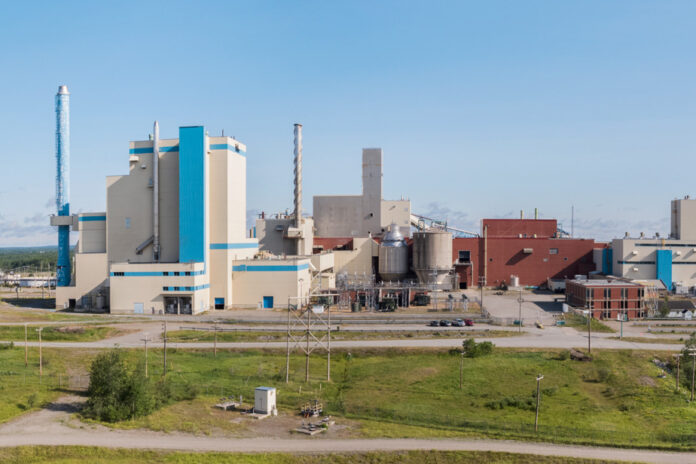Quebec renounces to be repaid a loan of approximately 100 million granted for the revival of the Nordic Kraft factory in Lebel-sur-Quévillon in order to maintain its level of shareholding. Chantiers Chibougamau, which controls the complex, promises that the dividends will be forthcoming.
“The plant has been very profitable in 2022 and when there are a few excellent years of profitability and it’s time for dividends, shareholders will be able to benefit,” says Frédéric Verreault, general manager, corporate development of the family business. Since we are taking steps to improve the balance sheet, we have every reason to believe that in a few years we will be there. »
In 2019, the Legault government had granted 138 million to relaunch this factory which transforms chips into kraft pulp, used in particular in the manufacture of hygienic products and cardboard packaging. The site closed in 2005 when it belonged to Domtar. The bill for the reboot project was estimated at the time at 342 million.
The government assistance came in three ways: an equity investment of 9 million, an interest-free loan of 32.4 million, and a subordinated loan of 96.5 million. It was the latter that was converted into Nordic Kraft, the limited partnership formed and controlled by Chantiers Chibougamau.
This forestry company had also loaned large sums to the limited partnership and decided to convert these loans in order to “clean up the balance sheet” of Nordic Kraft, Mr. Verreault explains. Quebec followed suit.
However, the portrait has been different for about a month, since activities have been stopped due to the forest fires raging in Nord-du-Québec and which have caused evacuations. It is still too early to assess the impact of this interruption on the financial performance of the year, said Mr. Verreault.
Quebec’s decision comes at a time when the price of a metric ton of bleached kraft pulp has just reached peaks. It traded at an average price of $1,704 last year, according to the most recent Forest Products Balance Sheet from the Ministry of Natural Resources and Forestry.
A decline has since been observed. The metric ton was worth US$1627 at the start of the year and it now trades around $1510.
In an email, Mathieu St-Amand, spokesman for the Minister of Economy, Innovation and Energy Pierre Fitzgibbon, concedes that the loan conversion aims to “improve the balance sheet” of Nordic Kraft.
The agreement reached with Chantiers Chibougamau also includes another clause. In the event that a foreign player wishes to get their hands on their participation in the limited partnership, the Quebec company will not have the right to accept for several years.
“We made a commitment to the Government of Quebec to maintain Quebec control for several years,” said Mr. Verreault, without however offering more details. Even if we were offered a jackpot for this strategic factory, we don’t have the right to [sell]. »
Without advancing on the conversion of the government loan, Luc LeBel, professor in the department of wood and forest sciences at Laval University, underlines the importance of the Lebel-sur-Quévillon plant in the forest ecosystem. Quebec. This site allows sawmills to rely on a place capable of transforming their sawing residues – the chips – to profit, says the specialist.
“Previously, there were pulp and paper mills to consume the chips, but there are far fewer of them now,” he says. The market for bleached kraft pulp is very interesting. It is important to have this whole ecosystem. »
When activities are running normally, there are approximately 300 employees at the Lebel-sur-Quévillon plant. Their average salary is estimated at $110,000.





